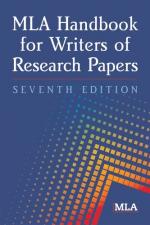|
This section contains 2,154 words (approx. 8 pages at 300 words per page) |

|
Although writers have explored the relationship between humans and the natural world for centuries, they primarily viewed the environment as subordinate to the needs of civilization and human progress. However, by the middle of the nineteenth century, writers such as Henry David Thoreau and Ralph Waldo Emerson began to reinterpret the significance of nature and our relationship to it.
Although not writing of pollution specifically, these writers laid the groundwork for an evolution in environmental thought and ethics in which the environment was seen as more than just a natural resource. For example, in Walden and other writings, Thoreau pointed out that our natural environment had far more to offer than material resources to be exploited. Rather, Thoreau noted that nature and the environment were sources of spiritual truth and support.
Although these writers and others, like John Muir and Aldo Leopold, helped educate the public about nature...
|
This section contains 2,154 words (approx. 8 pages at 300 words per page) |

|


